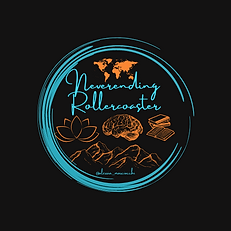The Art of Imperfection: A Journey into Japanese Aesthetics
- Alessia Masciocchi
- Mar 23, 2025
- 2 min read
Hello beauties!
We're not straying from Japan with this article because there's something truly noteworthy about this culture (actually there are too many things, but I must be selective!).
Today I want to tell you about something fascinating: Japanese aesthetics and its love for imperfection. Forget the Western obsession with perfection - in Japan, beauty lies precisely in what is imperfect, transitory, and incomplete.

The heart of this philosophy lies in several key concepts. The first is mono no aware (物の哀れ, /mononoaware/), which speaks to us about the beauty of impermanence. Think of cherry blossoms: they are considered most beautiful precisely when they begin to fall, reminding us that everything is transitory. The Japanese, in fact, appreciate the changing nature of things. Speaking of cherry blossoms: did you know that it's traditional to have a kind of picnic to admire the falling flowers?
Then there's the famous wabi-sabi (侘寂, /wabi-sabi/), which celebrates beauty in imperfection. Wabi (侘, /wabi/) means beauty in simplicity, while sabi (寂, /sabi/) refers to the charm that time leaves on things: it's the things that show signs of imperfection due to wear that the Japanese find beautiful, and from them we should learn to appreciate these details better.
Other interesting concepts are:
miyabi (雅, /miyabi/): elegant quietude
ma (間, /ma/): the power of emptiness and pauses
yugen (幽玄, /yūgen/): the mysterious beauty of the unspoken
shibusa (渋さ, /shibusa/): the art of subtle refinement
The most beautiful thing? These principles aren't just art theory - they apply to everyday life! They teach us to appreciate our "flaws," to find beauty over time, and to remember that perfection, perhaps, lies precisely in imperfection. And you? Have you ever thought that those small imperfections that worry you so much might be exactly what makes you unique and beautiful? After all, no one is perfect, and it's precisely these aspects that make us unique and different from one another.
How would we live without imperfection?
p.s. I know it might seem off-topic, but this concept of imperfection reminds me of when my father started growing carrots in the garden. We live on a mountainside, so the carrots encountered a layer of rock that made them deformed. But they were good and were the fruit of my father's effort in planting and growing them; during the harvest, we were overjoyed, and the carrots were delicious!




Comments